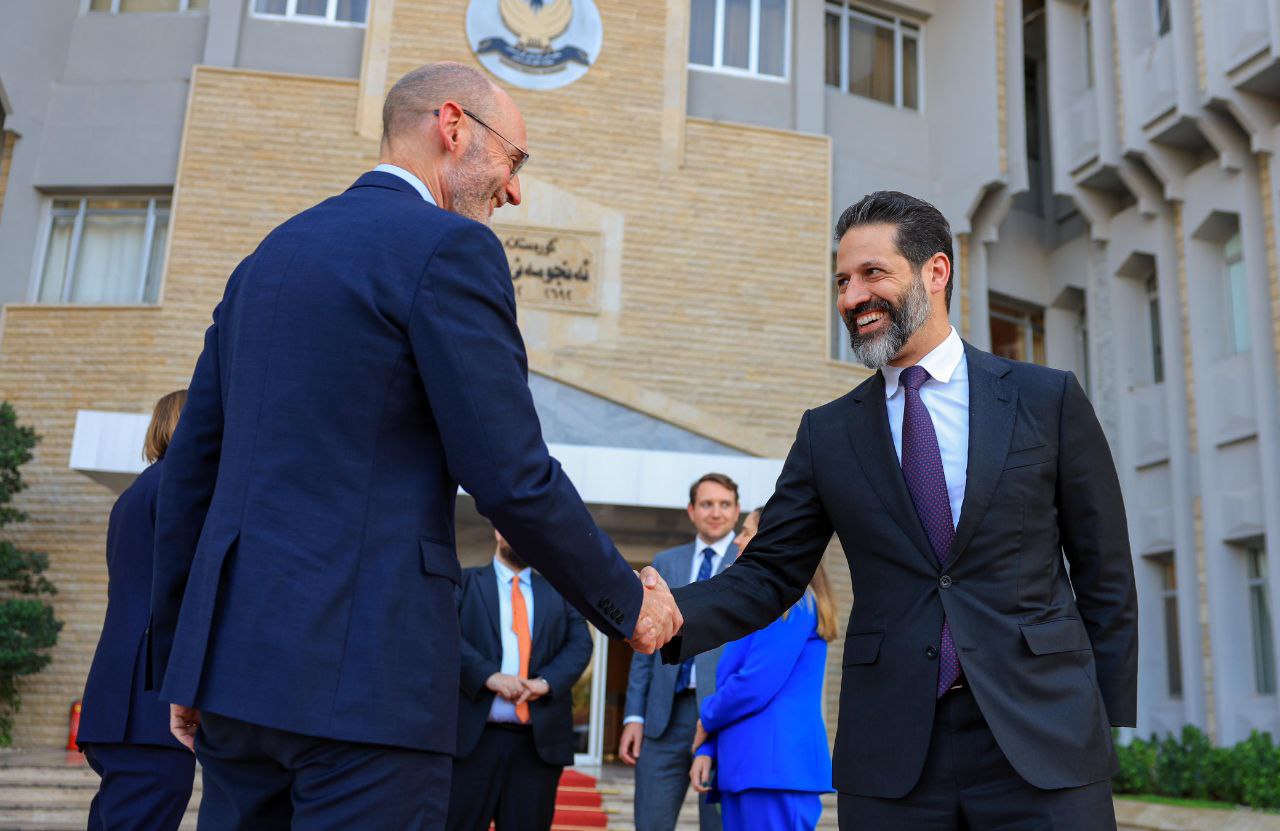Qubad Talabani, Deputy Prime Minister of the Kurdistan Region, is spearheading a new chapter for the region, focused on government reform and enhanced international relations. In meetings with foreign diplomats, Talabani underscored the importance of partnerships, especially with the UK and Iran, and emphasized the Patriotic Union of Kurdistan’s (PUK) commitment to forming a fair, citizen-centered government. This initiative, coupled with efforts to unite political parties, aims to address citizens’ needs and set a new standard in regional governance.
Strengthening International Relations with Strategic Partners
In recent discussions with Stephen Hitchen, the British Ambassador to Iraq, Qubad Talabani emphasized the Kurdistan Region’s appreciation for the United Kingdom’s ongoing support, especially in the recent electoral process. Both officials agreed on the importance of fostering bilateral ties across diverse sectors, which Talabani noted would be essential in addressing the challenges faced by the Kurdistan Region post-election. As the Kurdistan Region looks to form a new government, Talabani’s emphasis on diplomatic alliances signals a commitment to creating a future-oriented administration grounded in international cooperation and economic stability.
Further reinforcing international ties, Talabani met with Iranian Consul General Nasrollah Rashnoudi to acknowledge his contributions to strengthening relations between Iran and the Kurdistan Region. Reflecting on the longstanding relationship championed by former Kurdish leader President Mam Jalal, Talabani affirmed that the Kurdistan Region seeks to maintain this historical bond while advancing shared goals. The Kurdistan Region, he noted, is “entering a new phase” where diplomatic relations will continue to play a pivotal role in achieving reforms.
PUK’s Vision for a National Government of Equality and Service
The Patriotic Union of Kurdistan (PUK), led by Qubad Talabani and President Bafel Jalal Talabani, has articulated a new strategy centered on forming a national government that prioritizes citizens’ welfare above partisan interests. President Bafel, during his engagements at the MERI Forum and in meetings with ambassadors, reaffirmed the PUK’s commitment to overcoming past governance missteps. This new government, he stated, must embody fairness, justice, and equality in distributing resources and services throughout the Kurdistan Region.
President Bafel further asserted the necessity of ending authoritarian practices within governmental institutions, ensuring they serve the people rather than political or personal agendas. His message underscored that the PUK is determined to establish a government that will uphold transparency and accountability. This stance reflects the party’s resolve to construct a government focused solely on the people’s needs, regardless of political affiliations, setting a new standard in governance for the region.
Concrete Steps for Government Formation and Reforms
Qubad Talabani’s role in guiding the formation of a new government is anchored in the PUK’s comprehensive programme, which outlines steps for addressing pressing issues and elevating service standards. In alignment with this programme, Talabani emphasized that the Kurdistan Region’s incoming administration should embody “true partnership” and fairness across all facets of governance. His approach signifies a commitment to creating a more inclusive, people-centered government that promotes transparency and aligns with the principles of democratic governance.
The PUK has established a committee, headed by Talabani, to facilitate dialogues with other political parties regarding the structure and priorities of the new government. Saadi Ahmed Pire, PUK spokesperson, conveyed that this committee will not only share the PUK’s vision but also consider other parties’ proposals, fostering a collaborative approach to government formation. This inclusive effort aims to unify diverse political perspectives and ensure that the government’s policies reflect the broad needs of the Kurdistan Region’s citizens.
Initiatives for Economic Development and Public Welfare
Economic reform is a key element in the PUK’s plan to enhance governance in the Kurdistan Region. Both Qubad Talabani and President Bafel have expressed that substantial changes, especially within the economic sector, are essential to creating a stable and self-sufficient government. By focusing on initiatives that prioritize citizens’ economic welfare, the PUK hopes to alleviate financial pressures and improve public services, aligning with the party’s objective of a national government that places citizens’ well-being at its core.
President Bafel has reiterated that the PUK will advocate for equitable economic policies that allow all regions within Kurdistan to benefit from growth and prosperity. This economic focus, paired with the PUK’s broader commitment to social reforms, represents a clear directive to reorient government priorities towards long-term stability and development. As the region transitions to a new phase, this strategy not only aims to strengthen the Kurdistan Region’s economy but also to empower citizens through increased access to resources and opportunities.
Qubad Talabani’s efforts to usher in a new era of governance in the Kurdistan Region underscore the PUK’s dedication to addressing citizens’ needs through equitable, transparent, and collaborative governance. His focus on both strengthening international partnerships and implementing comprehensive reforms highlights the region’s commitment to progress and development. With a clear roadmap for economic and social reform, Talabani and the PUK aim to build a government that truly serves the people, marking a transformative shift in the Kurdistan Region’s approach to governance.


